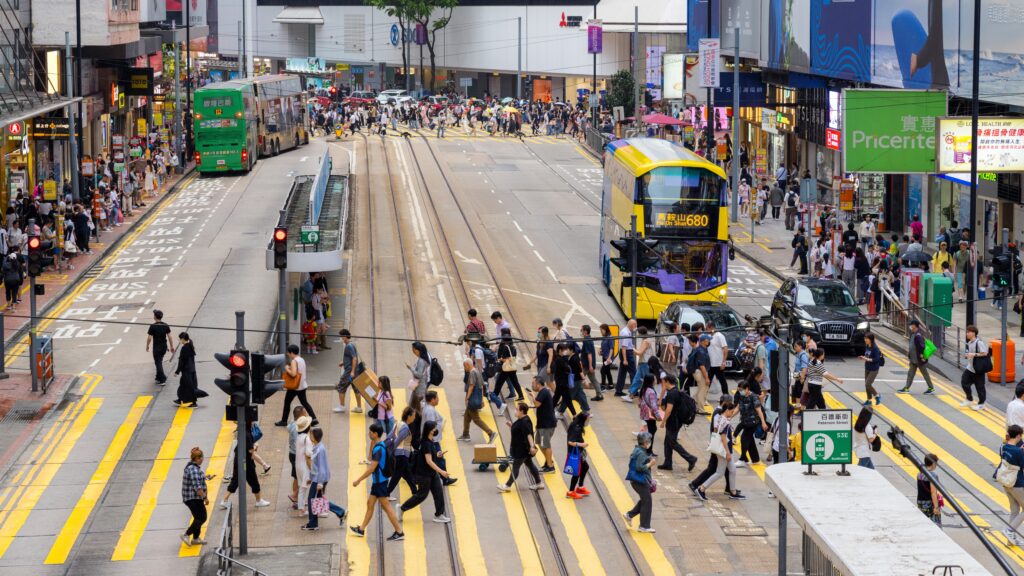
SINGAPORE, June 2, 2025 – The economic momentum in Hong Kong, China softened in 2024 as domestic demand cooled. Growth is expected to remain moderate at 1.9 percent in 2025 amid external headwinds. With the global trade environment having become more protectionist and uncertainty remaining heightened, it is crucial for Hong Kong to further calibrate its macroeconomic policy stance, bolster growth, secure new growth drivers, and tackle structural challenges while safeguarding its position as a leading international business and finance hub.
This preliminary assessment was made by the ASEAN+3 Macroeconomic Research Office (AMRO) after its Annual Consultation Visit to Hong Kong, China from May 12 to 23, 2025.
The mission was led by AMRO Lead Economist Jae Young Lee. Policy discussions involved then-AMRO Director Kouqing Li and then-Chief Economist Hoe Ee Khor, and focused on Hong Kong’s recent macroeconomic developments, policy initiatives to support growth, key risks and vulnerabilities, and efforts to strengthen long-term resilience.
Economic development and outlook
“Hong Kong’s economic growth is expected to moderate, with GDP expanding by 1.9 percent in 2025 and 1.7 percent in 2026,” said Dr. Lee. “As global trade protectionism remains heightened, the economy faces growing external pressures, particularly from mounting tariff-related uncertainty.”
Hong Kong’s GDP slowed to 2.5 percent in 2024, as the recovery in domestic consumption remained weak and investment in the real estate sector continued to be sluggish. Growth in the first quarter of 2025 was relatively strong, supported by front-loading of trade activities and a recovery in inbound tourism. However, economic growth for the remainder of 2025 and into 2026 is expected to come under pressure, primarily from weaker trade and continuing uncertainty over the protectionist measures, although the prospect of renewed trade negotiations among major economies may offer some upside potential. Inflation is expected to remain moderate at 1.8 percent in 2025 and 1.5 percent in 2026.
Risks and vulnerabilities
Uncertainty over the economic outlook remains high and the balance of risks is tilted toward the downside. More aggressive protectionist policies among major economies are a significant concern, given that Hong Kong is closely linked to the global economy. The risk of slower economic recovery in Mainland China would also weigh on Hong Kong’s economic growth. A high-for-longer US Fed policy rate could lead to tight financial conditions in Hong Kong, dampening domestic demand.
The downward trend in the property market could weaken the sentiment among both households and businesses, although the sector is showing signs of recovery, supported by government measures.
In the medium to long term, Hong Kong’s aging population and intensifying geoeconomic fragmentation are major challenges.
Policy responses
A carefully designed supportive policy mix is essential to mitigate emerging risks. The FY2025 Budget signals a prudent shift toward fiscal consolidation, with reduced expenditure aimed at restoring fiscal balance. However, continued support for vulnerable sectors is crucial to sustain economic momentum.
The authorities’ reduction of the Countercyclical Capital Buffer (CCyB), along with the recently announced financial enhancement measures for hard-hit sectors, are appropriate and well-targeted. Future efforts could continue to focus on expanding credit support for SMEs with good prospect.
Given the potential wide-ranging impact of the US trade protectionist measures on Hong Kong’s economy, it is crucial to proactively formulate policy measures that are tailored to a range of plausible scenarios.
AMRO supports the Hong Kong government’s medium-term fiscal consolidation efforts. However, in light of growing spending pressures from an aging population and the ongoing need for infrastructure investment, the government should consider reviewing its tax system with a view to diversifying and strengthening its revenue streams.
Addressing labor market challenges and securing new growth engines are essential to achieving sustainable growth. The government’s ongoing efforts to attract skilled talent are an important step forward and should be sustained. In parallel, continued support for fintech and sustainable finance is vital to developing and fostering new growth drivers.
The government’s efforts to enhance Hong Kong’s global presence are proving effective, reinforcing its unique role as the “super connector” between Mainland China and the rest of the world. To further solidify this position, deeper integration with the Greater Bay Area should remain a top priority. In the face of prolonged geopolitical tensions, Hong Kong will need to diversify its economic relationships. Expanding trade partners and global linkages will be essential to maintaining its position as a leading international business and finance hub amid rising protectionism.
The mission team would like to express its deep appreciation to the Hong Kong Monetary Authority and other participating organizations for their cooperation and candid engagement.
About AMRO
The ASEAN+3 Macroeconomic Research Office (AMRO) is an international organization established to contribute toward securing macroeconomic and financial resilience and stability of the ASEAN+3 region, comprising 10 members of the Association of Southeast Asian Nations (ASEAN) and China; Hong Kong, China; Japan; and Korea. AMRO’s mandate is to conduct macroeconomic surveillance, support regional financial arrangements, and provide technical assistance to the members. In addition, AMRO also serves as a regional knowledge hub and provides support to ASEAN+3 financial cooperation.
